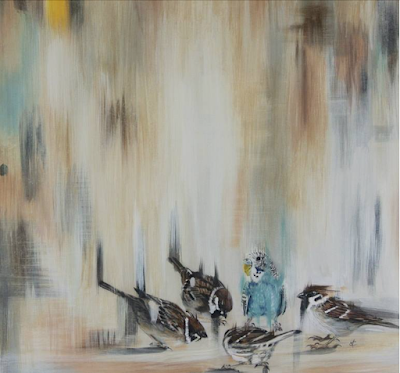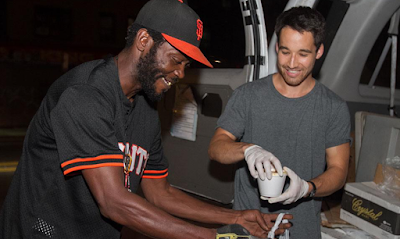by Marguerite Guzman Bouvard
 |
| At her regular spot on East 46th Street and Park Avenue, Nakesha Williams could often be seen surrounded by her belongings, including books that she was reading. Credit Luis Alfredo Garcia via The New York Times, March 3, 2018. |
thrived around a grate on 46th street in New York City,
where people hurry past to their destinations. Nakesha,
a brilliant and promising student whose life spiraled
into homelessness because of mental problems
made this grate her dominion. Surrounded by a cart,
bags of clothing, books and papers, she read
Anna Karenina, The War of Worlds, and wrote letters,
refusing to stay in homeless shelters, because she knew
they were unsafe or to accept medical care because
she didn't want to be labeled. But there were people who
passed by and became her friends. P.J. who brought
her toiletries, a raincoat, leather boots, and underwear.
A street vendor, a Moroccan immigrant, who parked
his coffee cart near the grate made her a breakfast
of eggs, a bun and cranberry juice, and protected her
from a man who taunted her, blocked another one
from stealing her purse. Another vendor,
an Egyptian immigrant who operated a sandwich cart
prepared her favorite lunch, chicken and rice. An optician
who passed by left her small gifts, hand lotion,
socks, and sneakers. When Nakesha died, P.J. knew
that her body would have been buried with unclaimed bodies
in a mass grave, and so she had her cremated, placing her ashes
in a mother of pearl urn flecked with gold. An office worker
who learned of P.J.'s efforts collected donations for the funeral
service and sent P.J. an envelope with money
and 21 signatures. Nakasha's college friends
gathered at the grate and lit candles for
her memorial service, reminding us of the
light that too many pass by.
Marguerite Guzman Bouvard is the author of nine poetry books, two of which have received awards. She has also written a number of non-fiction books on social justice, human rights and women's rights. She is a former professor of Political Science and Poetry and is now a Visiting Scholar at the Environmental Studies Program, Brandeis University.














